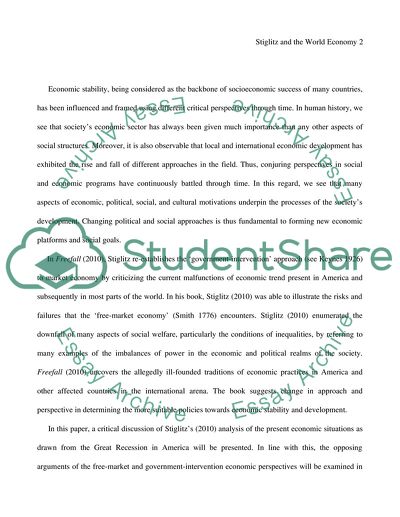Cite this document
(Joseph Stiglitz and the Downfall of the World Economy: A Critical Term Paper - 1, n.d.)
Joseph Stiglitz and the Downfall of the World Economy: A Critical Term Paper - 1. Retrieved from https://studentshare.org/macro-microeconomics/1752555-critical-perspectives
Joseph Stiglitz and the Downfall of the World Economy: A Critical Term Paper - 1. Retrieved from https://studentshare.org/macro-microeconomics/1752555-critical-perspectives
(Joseph Stiglitz and the Downfall of the World Economy: A Critical Term Paper - 1)
Joseph Stiglitz and the Downfall of the World Economy: A Critical Term Paper - 1. https://studentshare.org/macro-microeconomics/1752555-critical-perspectives.
Joseph Stiglitz and the Downfall of the World Economy: A Critical Term Paper - 1. https://studentshare.org/macro-microeconomics/1752555-critical-perspectives.
“Joseph Stiglitz and the Downfall of the World Economy: A Critical Term Paper - 1”, n.d. https://studentshare.org/macro-microeconomics/1752555-critical-perspectives.


